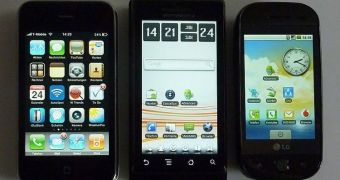According to Dr. Anastasiya Pocheptsova and Dr. Rosellina Ferraro, two researchers at the University of Maryland, cell phones may promote the exact opposite of connecting people. Their latest study indicates that community involvement has decreased since cell phones have been widely introduced.
They add that people tend to become less socially-minded when they have access to instant communications, even though this was supposed to ensure that they become more social. The origins of this counterintuitive effect are still under investigation.
The team focused its research on determining how cell phone usage patterns influence altruism. The latter was defined as the host of actions people take in order to benefit other people, social groups, or society itself, PsychCentral reports.
Researchers conducted a series of experiments on several groups of people who use cell phones often. The behavior of individuals in these groups was then compared to that of people in a control group.
It was determined that even a brief period of exposure to cell phone use led to participants volunteering far less often when asked to do so, as opposed to individuals in the control group. A lower level of persistence in dealing with large-scale, social problems was also found in the test groups.
Their refusal to get involved came even after they were told that their answer would lead to monetary donations to a charity. Overall, avid cell phone users demonstrated a decreased focus on others, and on society. The research was carried out on college students in their early 20s.
“We would expect a similar pattern of effects with people from other age groups. Given the increasing pervasiveness of cell phones, it does have the potential to have broad social implications,” Ferraro says.
One of the most interesting discoveries in the new study was that cell phone users who accessed the social networking site Facebook tended to feel more connected to others not because they could operate the site from any place, but because they had access to a cell phone capable of allowing them to do that.
The diminished need or urge to engage in empathic and prosocial behavior is reduced in cell phone users because the devices already fulfill their need to belong.

 14 DAY TRIAL //
14 DAY TRIAL //